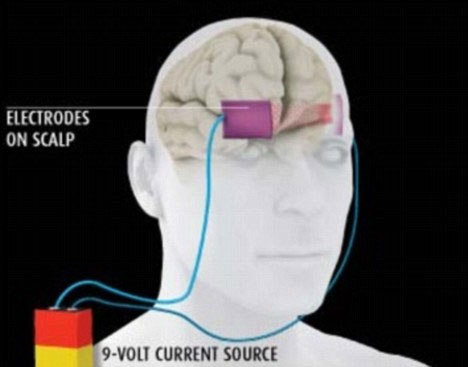Electrophysiological stimulation enhances the ability to learn
According to new research by Oxford University (UK), the method of direct transcranial direct current stimulation (TDCS) can help improve the speed of learning.
>>>New hope for patients with stroke

Experts begin to study by demonstrating that brain damage from stroke can be trained to better control motor function. 10 people have had a stroke within 6 months and 18 healthy people play a computer game, with the task of controlling the movement of a tool on the screen.
CT scans show that the brains of healthy people are less active, while stroke patients' brains become more active, demonstrating that damaged cells work harder. In another trial, 15 healthy volunteers were wearing a device with two electrodes, one placed on the left ear, the area where the brain region controlled motor function, the other placed on the right ear. While volunteers learn to press a series of keys, like playing a melody on a piano, experts conduct brain stimulation. The results show that when a small electric current runs from the left to the right through electrodes, the player learns to remember the combination of keys faster. Experts say that the electric current stimulates the brain to release chemicals that enhance the important link between brain cells.
This technique is expected to help stroke patients, people with memory impairment, reduced motor function. According to Professor Johansen-Berg, in the future, this technique could also be used to train people to learn sports faster.
- What will happen if the electric click on the brain dies?
- Stimulate brain by electricity to learn Math better
- 'Brain stimulation' recipes help you work more effectively
- Can predict a child's ability to learn?
- Gene therapy: a new method of improving the ability to remember and learn.
- Electricity can help learn math better
- Bracelet stimulates the brain
- Drinking tea enhances thinking ability
- Halo Sport: Brain-stimulating ear enhances the athlete's performance
- Cockatoo's ability to learn how to make 'utmost' tools
- Cortical stimulation will enhance memory
- He first launched brain stimulation device for depression
 Green tea cleans teeth better than mouthwash?
Green tea cleans teeth better than mouthwash? Death kiss: This is why you should not let anyone kiss your baby's lips
Death kiss: This is why you should not let anyone kiss your baby's lips What is salmonellosis?
What is salmonellosis? Caution should be exercised when using aloe vera through eating and drinking
Caution should be exercised when using aloe vera through eating and drinking